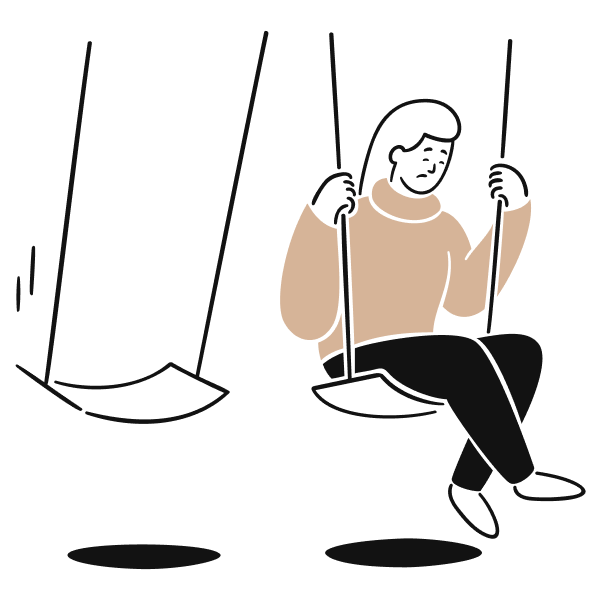What Are Symptoms of Depression?
You feel sad, sluggish and disinterested in everything. It takes a massive amount of effort to simply go to work and do regular household chores. Everything seems to be too much and you feel like you’re all alone in the world. It could be that you have a depression. This articles explains what a depression is and how to recognize the symptoms.
What is depression?
Depression is a mental disorder that affects your mood, thoughts, and feelings. It’s a mood disorder, where you feel passive and sad most of the day.
We use the term depression when a selection of relevant symptoms has been present for over two weeks and doesn’t seem to be improving. It’s an extremely common condition and, globally, it is estimated that 5% of adults are currently suffering from depression.
Having a depression; is that common?
As many as 20 percent of all Dutch people between the ages of 18 and 64 will sooner or later suffer from depression. You are certainly not alone. In fact, it is one of the most common mental disorders.
The relatively common occurrence of depression is partly due to the degree of stress we experience in our daily life. In addition, depression is an umbrella term for many different types as we explain below.
Experiencing these feelings every now and then doesn’t mean you are depressed, this happens to everyone. During that period you experience a sad mood, decreased interest and less pleasure in (almost) all daily activities. Your battery seems empty,, even when you’re doing things that normally give you energy.
Types of depression
Depression comes in many shapes and sizes. For example, some people experience long-term mild depressive symptoms, as is the case with dysthymic disorder. Meanwhile, other people struggle with severe depression, or go through alternating periods of highs and lows, as is the case with bipolar disorder. Read more about the types of depression.
How does a depression feel like?
Depression manifests itself slightly differently in each person. There are many different symptoms, but you won’t necessarily experience them all. A distinction is made between core symptoms and additional symptoms.
Core symptoms of depression
- Feelings of sadness
- Inability to derive pleasure from things
- Lack of motivation
Psychological symptoms of depression
- Anxiety
- Problems concentrating
- Indecisiveness
- Low self-esteem
- Feelings of shame
- Constant worrying
- Suicidal thoughts
Common physical symptoms that characterize depression
- Changes in your diet and/or weight
- You either sleep badly or a lot
- You experience a restless feeling or sluggishness in your body
- You have little energy and feel lethargic
- You feel worthless
- You suffer from indecision, concentration and/or memory problems
- You regularly think about death or suicide
- You experience fatigue
- You have a low sex drive
- You have an increased or decreased appetite
It is important to recognize the symptoms early. In some cases there is a light depression, and you can still do something about it yourself.
Do you suffer from mild symptoms or do you see someone else suffering from them? It is wise to:
- Create routine in your day
Get up and get out of bed at the same time every day. Go outside every day and eat healthy meals at set times. Also try to go to bed on time every night.
- Stay active
Try to get some exercise on a daily basis.
- Maintain contact with others
Visit others, for example by seeing friends or family.
Help
Are you afraid that you won’t be able to break out of this negative spiral? Depending on your location, call one of the following numbers for immediate support:
116 123 (UK)
1-800-273-8255 (USA)
0900-0113 (The Netherlands)
-
Do you have questions about what a depression is and how you can cope with a depression? Call us on +31207717996 and we give you personal advice. Or read more about when to consult a psychologist and how to match with a psychologist.
-
At iPractice, we use blended care. This is a combination of online and offline therapy. You’ll have face-to-face conversations with a consulting psychologist and you’ll also have access to an online psychologist in between.
-
Cognitive behavioral therapy (CBT) and Acceptance and Commitment Therapy (ACT) are common treatments for a depression.
-
The cost of treatment is reimbursed by most health insurance companies when there is a referral letter from the GP and when the GP can make an official diagnosis according to DSM-5 guidelines.


 Nederlands
Nederlands




